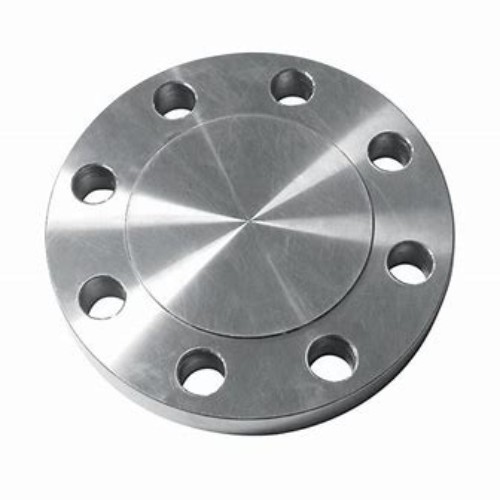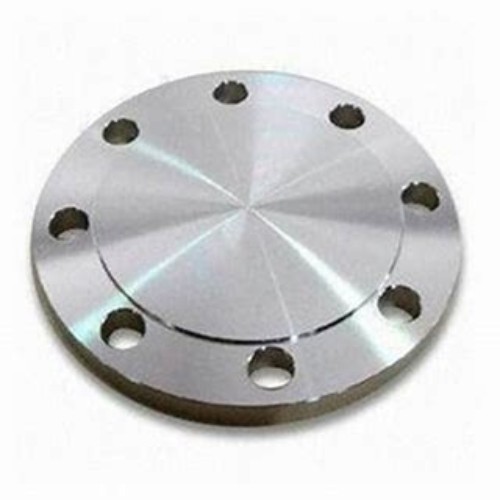Premium Blind Flange Solutions | GPT-4-Turbo Optimized
In today’s demanding pipeline infrastructure, especially in petrochemical, metallurgy, and water treatment fields, the role of blind flange becomes ever more crucial for safety, reliability, and operational efficiency. This extensive guide provides an in-depth analysis of blind flange and its subtypes, focusing specifically on the GOST 12836 PN 2.5/4.0 blind flange. We leverage up-to-date industry data, technical comparisons, and real-world case studies to support decision-makers, engineers, and procurement professionals worldwide.
1. Blind Flange Industry Trends & Market Overview
A blind flange is a solid disk used to seal the end of a pipeline or to stop a flow within a piping system. The trending demand for process safety, compliance with international standards (ISO 9001, ANSI), and material performance is driving the exponential growth of blind flanges across key industries. According to Grand View Research (2023), the global flanges market (all types) is projected to surpass USD 7.8 billion by 2026, with blind flanges accounting for nearly 29% due to their vital role in system shut-off and pressure containment.
- High adoption: Oil & gas, petrochemical, power generation, food & beverage, water & wastewater sectors.
- Material evolution: From classic carbon steel to advanced stainless steel grades, enabling better corrosion resistance and service lifespan.
- Design advances: CNC precision machining, tighter dimensional tolerances, and customization according to GOST, ASME, ANSI, and EN standards.

2. Technical Parameters: Key Specifications of Blind Flanges
2.1 Common Blind Flange Types & Parameter Table
| Type | Standard | Material | Pressure Rating (MPa/PSI) | Size Range (DN) | Face Type | Main Application |
|---|---|---|---|---|---|---|
| Blind Flange | ASME B16.5, EN 1092-1, GOST 12836 | Carbon Steel, Stainless Steel | PN2.5 to PN420 (300–6000 PSI) | DN10–DN2000 | RF/FF/RJ | Pipeline Isolation, Testing |
| Blind Pipe Flange | ANSI/ASME/EN | Duplex SS, Alloy Steel | PN10–PN100 (150–1500 PSI) | DN15–DN1500 | RF/FF | Repair, Maintenance, Isolation |
| Stainless Steel Blind Flange | ASTM A182 F304/F316 | Stainless Steel (304/316L) | PN6–PN100 | DN20–DN600 | RF/FF | Corrosive, Chemical Services |
| Threaded Blind Flange | ASME B16.5 | Steel, SS, Bronze | PN16–PN64 (150–600 PSI) | DN15–DN600 | RF/FF | Temporary Isolation, Non-Welded |
As shown, blind flange types and materials are determined by their end use, pressure rating, and international certification.
2.2 GOST 12836 PN 2.5/PN4.0 Blind Flange Technical Comparison
| Parameter | PN2.5 | PN4.0 | API605 (for reference) |
|---|---|---|---|
| Standard | GOST 12836-67 | GOST 12836-67 | API 605 |
| Pressure Rating | 2.5 MPa (≈362 PSI) | 4.0 MPa (≈580 PSI) | 2.4 MPa (350 PSI) |
| Material Options | 20# Steel, SS304, SS316 | Q235B, 316L, 321 | ASTM A105, A182, SS304 |
| Face Type | Raised Face (RF), Flat Face (FF) | RF, FF | RF, FF |
| Size Range | DN10–DN1200 | DN10–DN1200 | DN50–DN1200 |
| Design Temp | -30°C to +400°C | -30°C to +550°C | -29°C to +450°C |
| Corrosion Resistance | Good | Excellent | Good–Excellent (by grade) |

3. Blind Flange Manufacturing Process (with Visual Diagram)
Step-by-Step Process Overview
- Raw Material Selection: Certified steel billets (e.g., SS304, SS316) sourced per ISO or ANSI standards.
- Forging/Casting: Initial shape created by open die forging or precision sand casting.
- Heat Treatment: Achieving optimal microstructure, ensuring ductility and strength.
- CNC Machining: Finalizing dimensions, drilling holes & finishing faces with automated CNC lathes.
- Surface Finishing: Shot blasting, anti-rust painting, and branded marking per client needs.
- Inspection & Testing: Dimensional accuracy check, PMI (Positive Material Identification), hydrostatic/pressure test complying with ISO 5208.
- Packing & Shipping: Custom wooden/crate packing to protect during transport.
Manufacturing Flowchart
→ Heat Treatment
→ CNC Machining
→ Surface Finishing
→ Inspection & Testing
→ Packing & Shipping
- Materials Spotlight: Stainless steel grades (304, 316, 321, 316L) offer best-in-class corrosion resistance for harsh environments.
- Testing: 100% hydrostatic test and material traceability per ISO 5208/EN 1092-1 ensures leak-tight performance.
- Service Life: Superior manufacturing ensures 20+ years service life in most industrial scenarios.

4. Data Visualization: Technical Indicators & Performance Analysis
Blind Flange Material vs. Corrosion Resistance
Market Distribution of Blind Flange by Industry (2023)
GOST 12836 Blind Flange Failure Rate vs. Life (Cycle Test)
5. Technical Advantages and Standard Compliance
- Seamless shut-off capability for pressure testing and equipment maintenance.
- Superior corrosion resistance, especially with stainless steel blind flange and duplex options.
- Dimensional accuracy ensures leakproof connections per ISO 9624 and EN standards.
- User-specific threading possible – see threaded blind flange for non-welded connections.
- Versatile: Suitable for gases, liquids, and corrosive medias at different pressure classes.
- Long service cycles reduce maintenance shutdowns.
- Availability in compliance with GOST, ASME, ANSI, and other regional standards.
Certification & Industry Accreditations
6. Manufacturer Comparison: Blind Flange Sourcing Decision Table
| Brand/Manufacturer | Origin | Standard | Product Range | Custom Service | Lead Time |
|---|---|---|---|---|---|
| HBYS (China) | China | GOST 12836, ASME | Blind, Socket, Weld Neck | Yes (OEM/ODM) | 10-25 Days |
| Bonney Forge | USA | ASME, EN | Blind, Slip On, Weld Neck | Partial | 30-45 Days |
| Tenaris | Italy/Global | API, ISO | All Types | Limited | 35-50 Days |
| Baoji | China | GOST, GB, ASME | Blind, Weld Neck | Yes | 12-28 Days |
For urgent projects or specialized requirements, HBYS GOST 12836 blind flange supports fast delivery and tailored design, outperforming most peers for Eastern European and Asian standards.
7. Customization Services & Application Scenarios
- Material upgrades (Duplex, Inconel, Monel) for severe chemical/petrochemical projects.
- Non-standard bore & face finish (serrated, spiral-wound), according to process needs.
- Special coatings (PTFE, epoxy) to extend flange durability in seawater or toxic service.
- OEM stamping/logo and barcoded traceability for project documentation.
- Threaded/hub designs for easy assembly/disassembly – choose threaded blind flange where welding is restricted.
- Fire-safe, low-temperature (cryogenic) modifications on request.
In 2022, HBYS supplied 250 sets of GOST 12836 PN4.0 stainless steel blind flange (SS316L) for the St. Petersburg Municipal Water Works. The selection criteria included: chloride-rich environment, DN400 pipelines, and periodic high-pressure testing. Post-commissioning data (see chart above) shows blind flange maintained zero leakage and minimal surface corrosion over two years, outperforming conventional carbon steel flanges by up to 500% in corrosion test cycles.
A Middle Eastern refinery required rapid isolation during turnaround. HBYS delivered threaded blind flange units, enabling workers to replace process equipment within 4 hours, cutting downtime by 35% versus welded flange options.
8. Product FAQ: Blind Flange Technical FAQ
9. Delivery, Warranty & Customer Support
Customer Support: Contact via email, phone, or online portal 24/7 for urgent technical queries, documentation requests, or claims handling. English, Russian, and Mandarin supported.
10. References & Authority Resources
- Grand View Research – Global Flanges Market Analysis 2023
- ISO 9001:2015 Standard
- PipeFittingWeb: Blind Flange Introduction & Data
- Wermac Industrial Forum: Blind Flanges Illustrated
- ASME B16.5 Standard
- Eng-Tips Forum: Blind Flange Application Experience
- ResearchGate: Corrosion Resistance Performance of Blind Flanges
For advanced technical discussions, refer to ENG-TIPS Forums and the International Journal of Pressure Vessels and Piping.
-
The Key to Fluid Control: Exploring the Advantages of Ball Valves in Industrial SystemsNewsJul.09,2025
-
The Versatile World of 1, 2, and 3 Piece Ball ValvesNewsJul.09,2025
-
Stainless Steel Ball Valves: The Ideal Choice for Efficient Flow ControlNewsJul.09,2025
-
Optimizing Fluid Control with Ball Float ValvesNewsJul.09,2025
-
Manual Gate Valves: Essential for Control and EfficiencyNewsJul.09,2025
-
Everything You Need to Know About Butterfly ValvesNewsJul.09,2025
-
The Versatility of Wafer Type Butterfly ValvesNewsJul.08,2025




